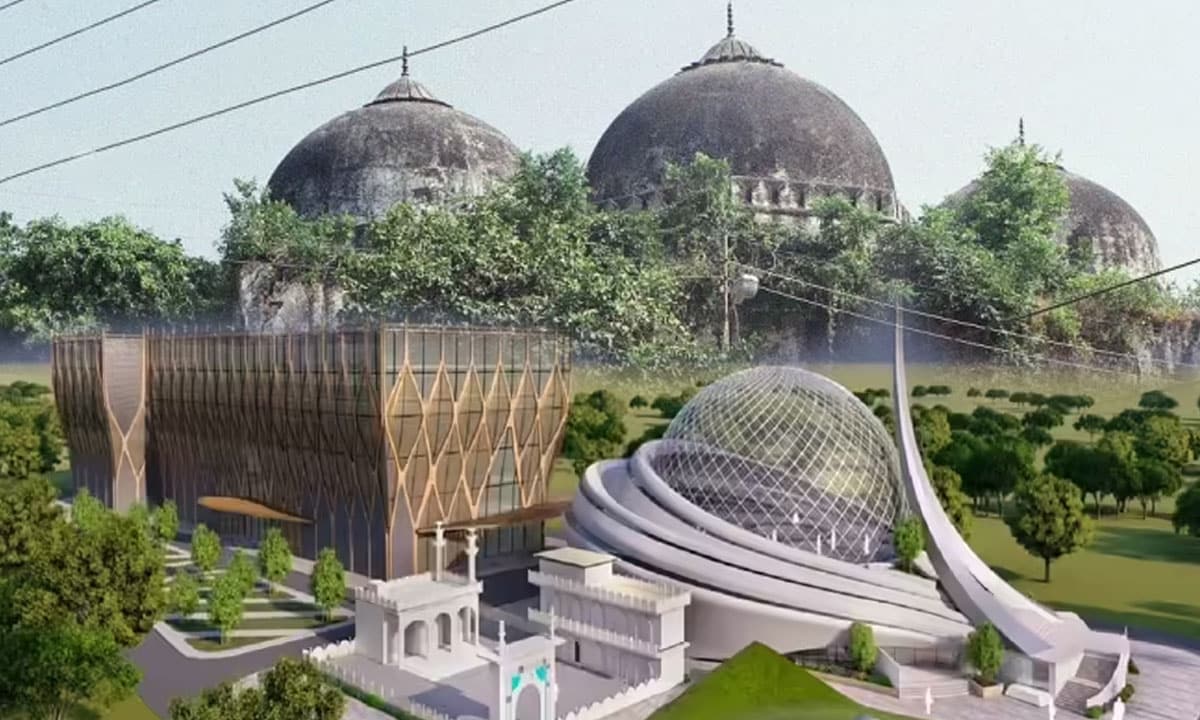Permission Denied for Mosque Construction on Land Allotted as Replacement After Babri Masjid Verdict
The land was handed over to the Sunni Central Waqf Board in line with the Supreme Court’s 2019 judgment, which had directed the state government to provide five acres for the mosque project after awarding the disputed Ayodhya site for the construction of the Ram temple.

The Ayodhya Development Authority (ADA) has turned down the proposal to build a mosque on land allotted in Dhannipur village, citing the absence of mandatory clearances from multiple government departments.
The land was handed over to the Sunni Central Waqf Board in line with the Supreme Court’s 2019 judgment, which had directed the state government to provide five acres for the mosque project after awarding the disputed Ayodhya site for the construction of the Ram temple. The plot in Sohawal tehsil, roughly 25 kilometers from Ayodhya town, was formally transferred to the board in August 2020 by then district magistrate Anuj Kumar Jha.
According to details obtained through an RTI query filed by journalist Om Prakash Singh, the mosque trust submitted its application on June 23, 2021. While the trust deposited over ₹4 lakh as scrutiny and application fees, the proposal was rejected on September 16 this year because it lacked no-objection certificates (NOCs) from several key departments, including Public Works, Pollution Control, Civil Aviation, Irrigation, Revenue, Municipal Corporation, and Fire Services.
Also Read: Mamata Banerjee blames private power distribution utility for 7 electrocution deaths
Mosque trust secretary Athar Husain voiced disappointment at the decision, pointing out that the land had been provided under the Supreme Court’s directions. “We are unable to understand why the departments withheld their clearances and why the authority has rejected the plan,” he said.
Husain explained that during a recent inspection, the Fire Department flagged the approach road as a major hurdle. The access route to the proposed mosque and hospital complex is only about six meters wide—and narrows to four meters at one point—while regulations require a minimum width of 12 meters. “Apart from the fire department’s objection, I have no knowledge of the issues raised by other agencies,” he added.
The rejection has left the mosque project in limbo, raising fresh questions over how soon the Waqf Board will be able to meet the compliance requirements and resubmit its plans. For now, the much-anticipated construction—meant to symbolize closure to one of the country’s most sensitive disputes—remains stalled.
